Abstract
Photoaffinity labeling is a recently introduced method for covalently binding chemical tags to the active sites of protein molecules, which is potentially capable of very great specificities of labeling. A labeling reagent is used that is converted by photolysis to an extremely reactive intermediate. According to the expected mechanism, the reagent molecules that are specifically and reversibly bound to the active site at the instant of photolysis react irreversibly in the site before they can dissociate from the site. In two such reagent-protein systems studied in this paper, however, it is shown that, while by the usual criteria photoaffinity labeling appears to have occurred, the expected mechanism in fact does not hold. This was discovered in experiments with scavengers present in the mixtures that were photolyzed. The general properties of, and criteria for, photoaffinity labeling reactions are discussed in the light of these findings.
Keywords: active sites of proteins, photolysis, acetylcholinesterase
Full text
PDF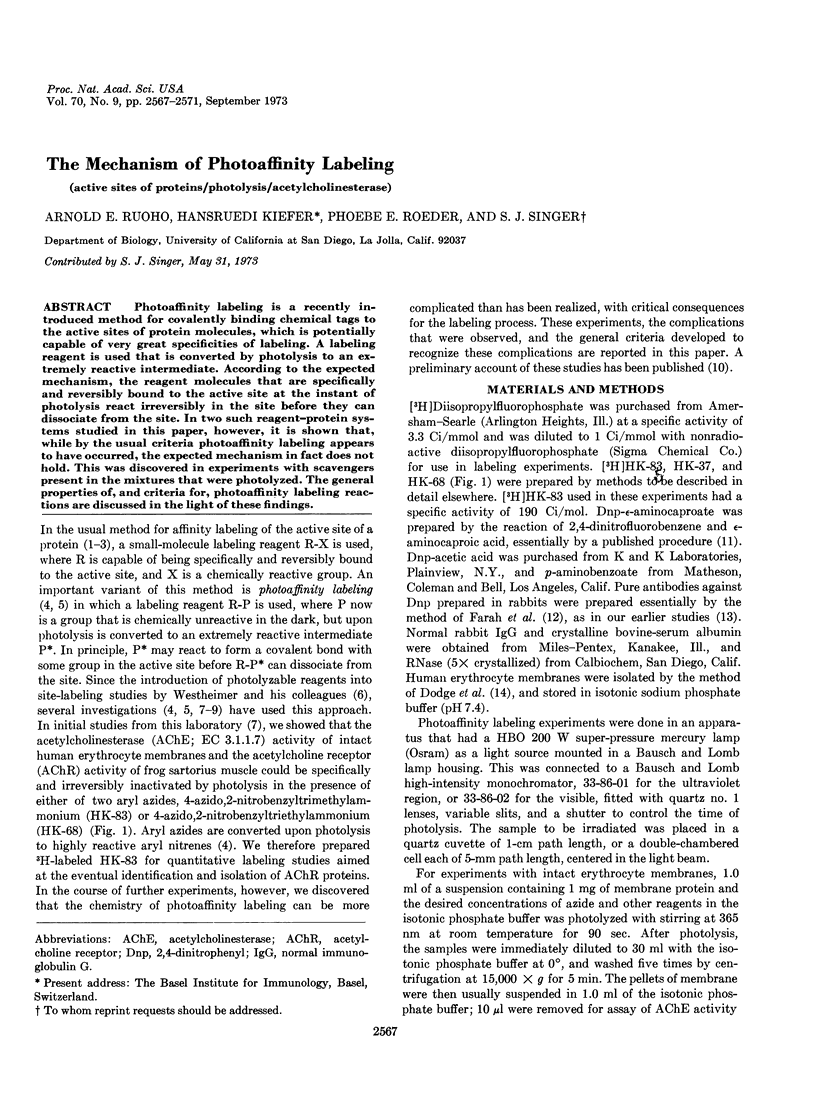
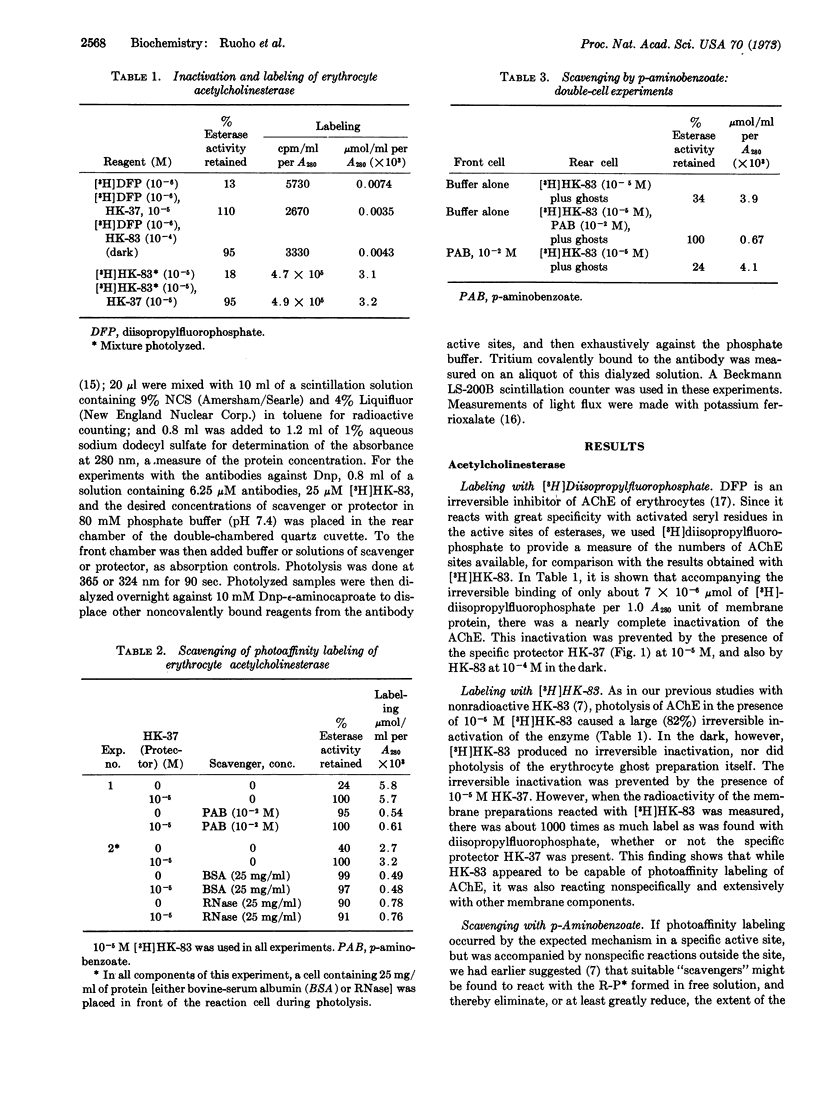
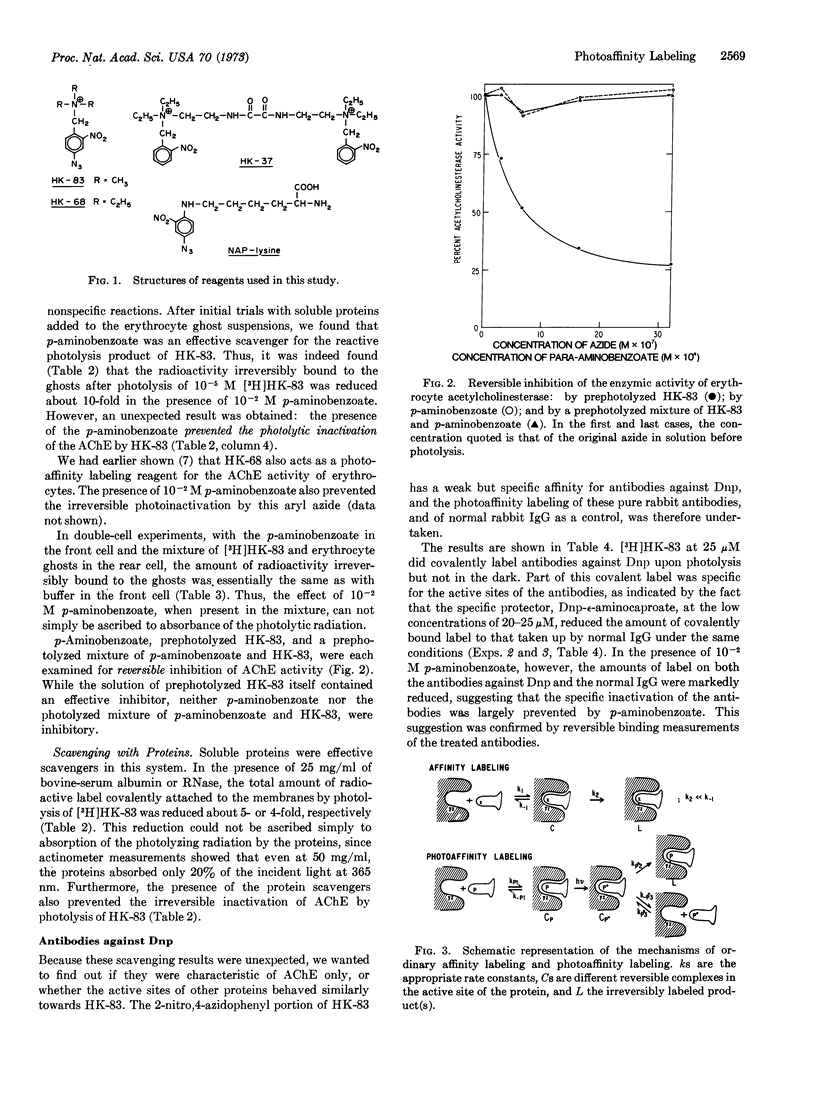
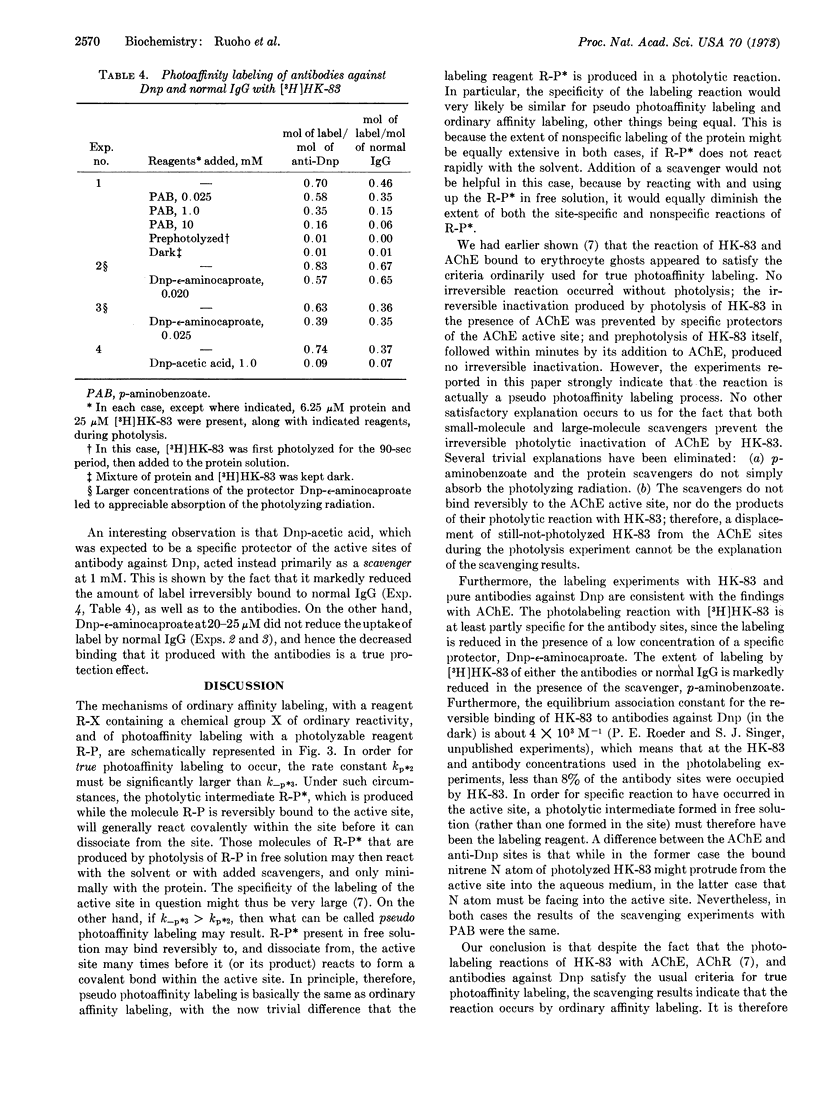
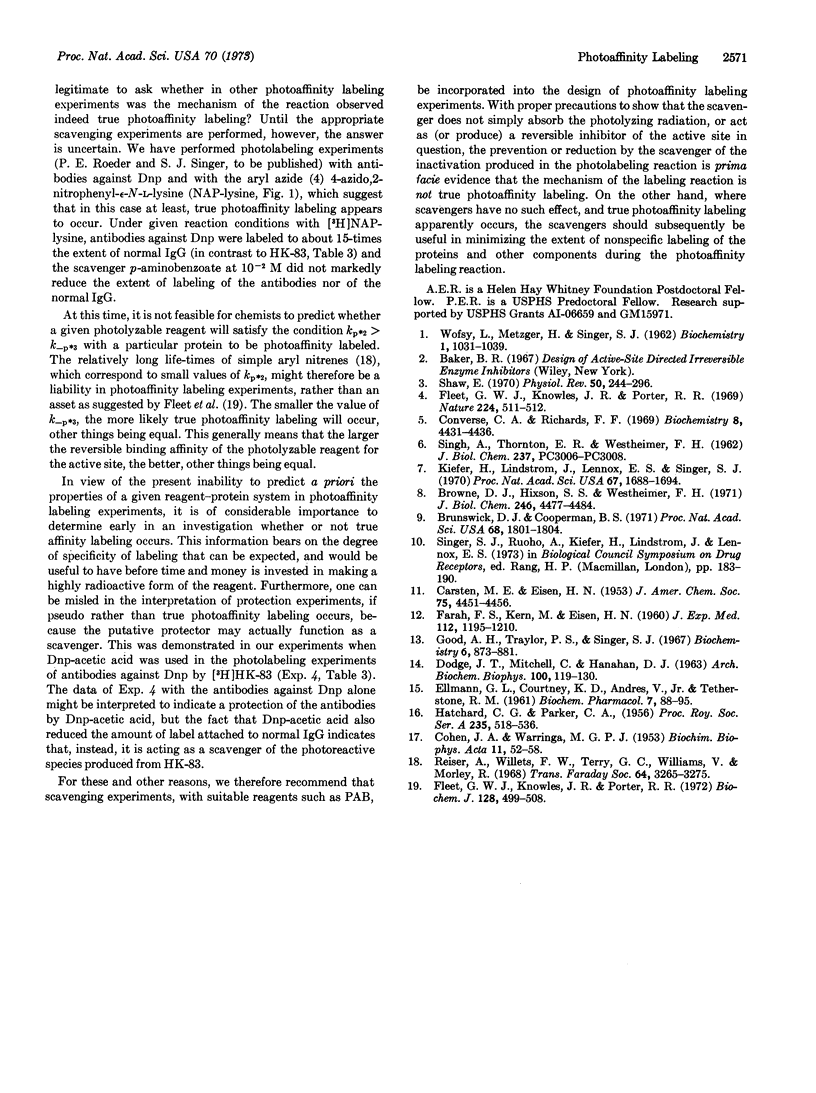
Selected References
These references are in PubMed. This may not be the complete list of references from this article.
- Browne D. T., Hixson S. S., Westheimer F. H. A diazo compound for the photochemical labeling of yeast alcohol dehydrogenase. J Biol Chem. 1971 Jul 25;246(14):4477–4484. [PubMed] [Google Scholar]
- Brunswick D. J., Cooperman B. S. Photo-affinity labels for adenosine 3':5'-cyclic monophosphate. Proc Natl Acad Sci U S A. 1971 Aug;68(8):1801–1804. doi: 10.1073/pnas.68.8.1801. [DOI] [PMC free article] [PubMed] [Google Scholar]
- COHEN J. A., WARRINGA M. G. Methods to estimate the turnover number of preparations of ox red cell cholinesterase. Biochim Biophys Acta. 1953 May;11(1):52–58. doi: 10.1016/0006-3002(53)90007-9. [DOI] [PubMed] [Google Scholar]
- Converse C. A., Richards F. F. Two-stage photosensitive label for antibody combining sites. Biochemistry. 1969 Nov;8(11):4431–4436. doi: 10.1021/bi00839a031. [DOI] [PubMed] [Google Scholar]
- DODGE J. T., MITCHELL C., HANAHAN D. J. The preparation and chemical characteristics of hemoglobin-free ghosts of human erythrocytes. Arch Biochem Biophys. 1963 Jan;100:119–130. doi: 10.1016/0003-9861(63)90042-0. [DOI] [PubMed] [Google Scholar]
- ELLMAN G. L., COURTNEY K. D., ANDRES V., Jr, FEATHER-STONE R. M. A new and rapid colorimetric determination of acetylcholinesterase activity. Biochem Pharmacol. 1961 Jul;7:88–95. doi: 10.1016/0006-2952(61)90145-9. [DOI] [PubMed] [Google Scholar]
- FARAH F. S., KERN M., EISEN H. N. The preparation and some properties of purified antibody specific for the 2,4-dinitrophenyl group. J Exp Med. 1960 Dec 1;112:1195–1210. doi: 10.1084/jem.112.6.1195. [DOI] [PMC free article] [PubMed] [Google Scholar]
- Fleet G. W., Knowles J. R., Porter R. R. The antibody binding site. Labelling of a specific antibody against the photo-precursor of an aryl nitrene. Biochem J. 1972 Jul;128(3):499–508. doi: 10.1042/bj1280499. [DOI] [PMC free article] [PubMed] [Google Scholar]
- Good A. H., Traylor P. S., Singer S. J. Affinity labeling of the active sites of rabbit anti-2,4-dinitrophenyl antibodies with m-nitrobenzenediazonium fluoroborate. Biochemistry. 1967 Mar;6(3):873–881. doi: 10.1021/bi00855a031. [DOI] [PubMed] [Google Scholar]
- Kiefer H., Lindstrom J., Lennox E. S., Singer S. J. Photo-affinity labeling of specific acetylcholine-binding sites on membranes. Proc Natl Acad Sci U S A. 1970 Dec;67(4):1688–1694. doi: 10.1073/pnas.67.4.1688. [DOI] [PMC free article] [PubMed] [Google Scholar]
- Shaw E. Selective chemical modification of proteins. Physiol Rev. 1970 Apr;50(2):244–296. doi: 10.1152/physrev.1970.50.2.244. [DOI] [PubMed] [Google Scholar]
- WOFSY L., METZGER H., SINGER S. J. Affinity labeling-a general method for labeling the active sites of antibody and enzyme molecules. Biochemistry. 1962 Nov;1:1031–1039. doi: 10.1021/bi00912a013. [DOI] [PubMed] [Google Scholar]


